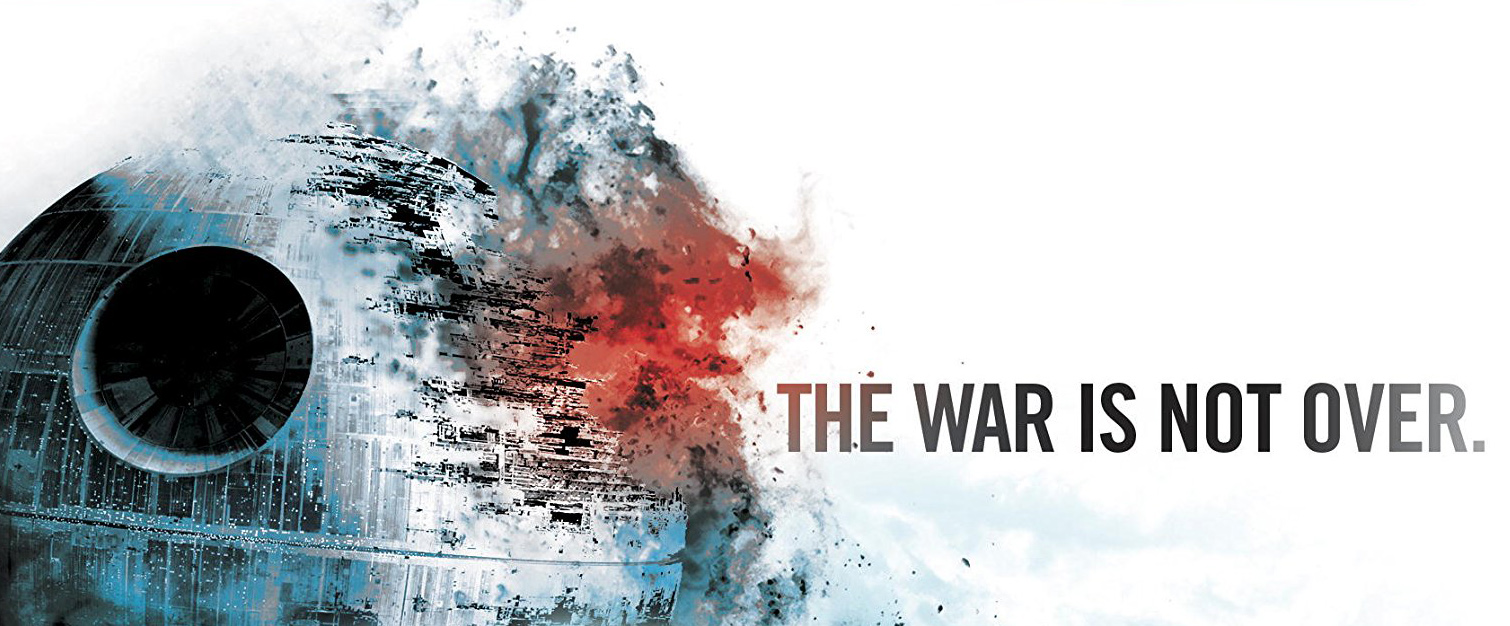
So, once upon a time you watched a Star Wars movie. You got hooked and starting seeking other tales, books, comics, video games and time went by. Years later you’ve changed, as has SW, and new films are coming out, with their own spin and there was a reboot no less. Amid all of this, what’s an old fan to do? The answer is surprisingly simple – no matter what, you hold onto that which got you into the story in the first place, regardless of what that may be.
It can’t be that easy, right? No. For instance someone may think it a great idea to kill off characters like Chewbacca because no one was using him. Or that it’s a great idea to put an ex-Imperial with untreated psychotic and megalomaniacal tendencies in charge of the galaxy. Or that there must be one unchanging Jedi Order across millennia with no variation permitted. Any long-running franchise will throw up challenges to the perspective of the long-time fan, which they must decide how to respond to. Often people look at development X and conclude whatever drew them to the story is no longer in place and it’s time to go. Others seek to sideline and mitigate the effect of development X.
And then, of course, there are the new fans. The ones who’ve just found it and are full of bubbly enthusiasm and think it’s all wonderful and not at all cynical about crap story development or high-handed corporate moves. Still, they’ll learn better, won’t they? Really? A better question to ask is why should they do so at all? If you look at an enthusiastic post about SW and are cynical about it, then you ought to consider that the problem is with you! New fans are fun and they bring new insights, new perspectives – and part of being a long-time fan successfully is embracing this, not resisting it. Read More
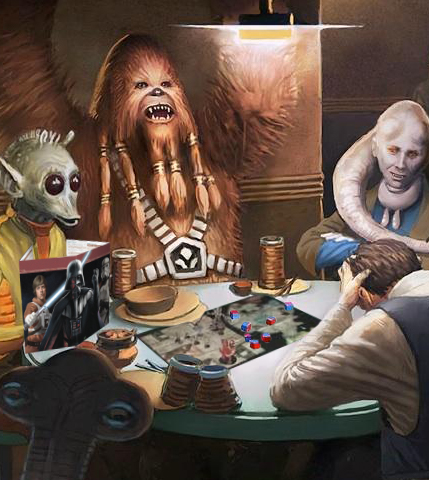
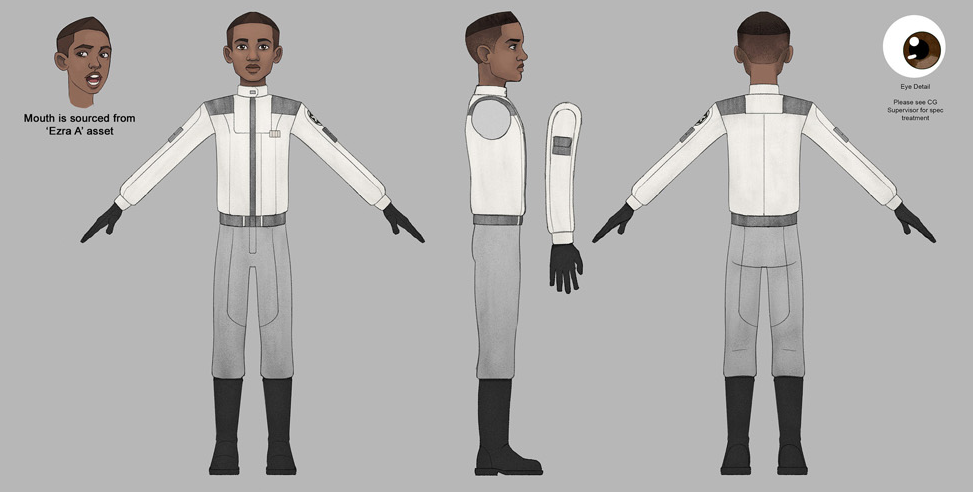
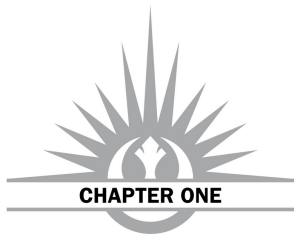 I can see twelve-year-old Rocky, at the local public library, grabbing Heir to the Empire off the revolving book rack, reading a few pages, and then that night diving into the book and getting thoroughly hooked. I can remember how it felt to be back in a galaxy at war, one where the nascent New Republic had a chance but not a definite one, where the Empire was something of a wounded animal but still a dangerous one, where we didn’t know much about the parameters of the universe we were in, where every new character and plot twist was met with delight. Where I couldn’t wait for the next chapter.
I can see twelve-year-old Rocky, at the local public library, grabbing Heir to the Empire off the revolving book rack, reading a few pages, and then that night diving into the book and getting thoroughly hooked. I can remember how it felt to be back in a galaxy at war, one where the nascent New Republic had a chance but not a definite one, where the Empire was something of a wounded animal but still a dangerous one, where we didn’t know much about the parameters of the universe we were in, where every new character and plot twist was met with delight. Where I couldn’t wait for the next chapter. 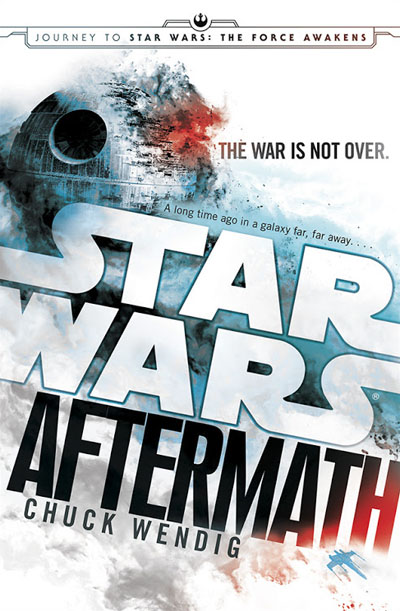 When I first pitched this article I was just one-third through Chuck Wendig’s Aftermath, the first book in a trilogy that’s supposed to show us what happened to the Star Wars galaxy right after Return of the Jedi (and that apparently doesn’t involve soul-stealing velociraptors, for some strange reason). At that point I wasn’t enjoying what I was reading; it’s not that I was offended or that I thought I was reading a baby-cooking recipe book written on Satan’s scrotum with Gandhi’s blood, but I was wondering exactly where we were going. The terrible editing had started annoying me (you simply can’t have a character change races, from Rodian to Abednedo and back, and expect no one to call you on it). I wasn’t feeling the main characters, either, and I was starting to suspect the story was going to go nowhere and that the whole thing was going to end up being just another inconsequential side trip.
When I first pitched this article I was just one-third through Chuck Wendig’s Aftermath, the first book in a trilogy that’s supposed to show us what happened to the Star Wars galaxy right after Return of the Jedi (and that apparently doesn’t involve soul-stealing velociraptors, for some strange reason). At that point I wasn’t enjoying what I was reading; it’s not that I was offended or that I thought I was reading a baby-cooking recipe book written on Satan’s scrotum with Gandhi’s blood, but I was wondering exactly where we were going. The terrible editing had started annoying me (you simply can’t have a character change races, from Rodian to Abednedo and back, and expect no one to call you on it). I wasn’t feeling the main characters, either, and I was starting to suspect the story was going to go nowhere and that the whole thing was going to end up being just another inconsequential side trip.